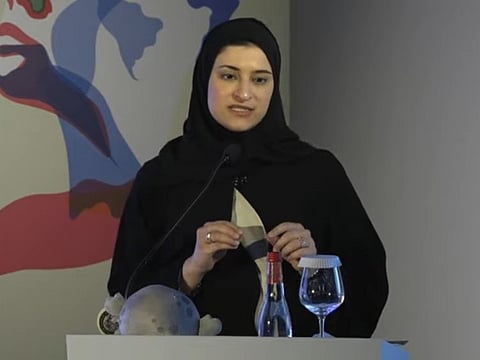Expo 2020 Dubai celebrates International Day of Science for Women and Girls
Interactive session features female space scientists, astrophysicists, biotechnologists

Dubai: Calling for more gender parity in Science, Technology, Engineering and Math (STEM) as well as in Astrophysics and space exploration, eminent international women scientists from around the globe held an inspiring hybrid session at Expo 2020 Dubai today, to celebrate the International Day of Science for Women and Girls on February 11.
The three-hour discussion was divided into various sessions and attended by a large section of female students. Maggie Pocock, space scientist and science communicator, moderated the session. The discussion sought to answer questions on why the world needs more women in the world of space, STEM, climate change and clean energy and the issue of mentorship and empowerment for women in those fields.
Bias-free science education for girls in UAE
Addressing the audience at the opening of the session, Sara Al Ameeri, UAE Minister of State for Advanced Technology and Chairwoman of the UAE Space Agency, said this day was fundamentally important for this sector as a whole. “As a young girl, I had access to education, sciences and there was absence of any discriminatory biases against women.” She said it was important for the current generation to know that you did not need to be of a particular gender to be an engineer or a space scientist. “Nearly 80 per cent of the team on the Emirates Mars Mission were women because we levelled the playing field. Inclusion and diversity and absence of discrimination helped us create ground-breaking programmes. Hopefully, this will become the norm and one day, we won’t need to hold a special session on International Day of Science for Women and Girls,” she said.
Women in majority in science courses
Talking about the amazing progress made by the UAE, panellist Dr Lourdes Vega, director of the Research and Innovation Centre on Co2 and Hydrogen (RICH) and professor of Chemical Engineering at Khalifa University, Abu Dhabi, highlighted the amazing progress of Emirati women in this field.
She told Gulf News on the sidelines of the panel discussion: “In the last six years that I have been in the UAE, I got an opportunity to follow up on my female students who have been with me from undergraduate to post graduate and doctorate studies. In my chemical engineering class, nearly two-thirds of my Emirati students are women.”
Dr Vega added that she perceived that women in her class played a very proactive role and could see a bigger place for themselves, in the UAE STEM field.
Dynamic steps to attain gender parity
Suggesting steps to retain clear gender parity in this field, Dr Vega said: “Sometimes women drop out after completing undergraduate studies. Three steps are needed to stop this. First, women must conquer their fear of the unknown. Secondly, there must be ample role models they can follow and there can be more incentives for women with more positions in this sector when they graduate, so that they can retain their visibility in this field. In addition to this, government policies that are already there in this field to support women should be monitored to see that they are being implemented.”
Fatima Al Shamsi, the acting head of space regulations at the UAE Space Agency, and Saudi biotechnologist Hyatt Sindi regaled the audience with their accounts of how they overcame their own inhibitions and competed in a man’s world to carve out a niche for themselves.
Interactive session
Other illustrious women in STEM and space field who participated in the panel discussion included Simonetta Di Poppo, Italian astrophysicist and the current director of the United Nations Office for Outer Space Affairs (UNOOSO), Dr Shamila Nair-Bedoulle, assistant director-general for Natural Sciences, UNESCO. In addition, Zainab Azim, space programme mentor and youngest member of Virgin Galactic’s Future Astronaut Programme, Salma Sylla Mbae, astrophysicist, Karen Hallberg, professor in Atomic Research from Argentina answered queries from the audience.
Sign up for the Daily Briefing
Get the latest news and updates straight to your inbox

